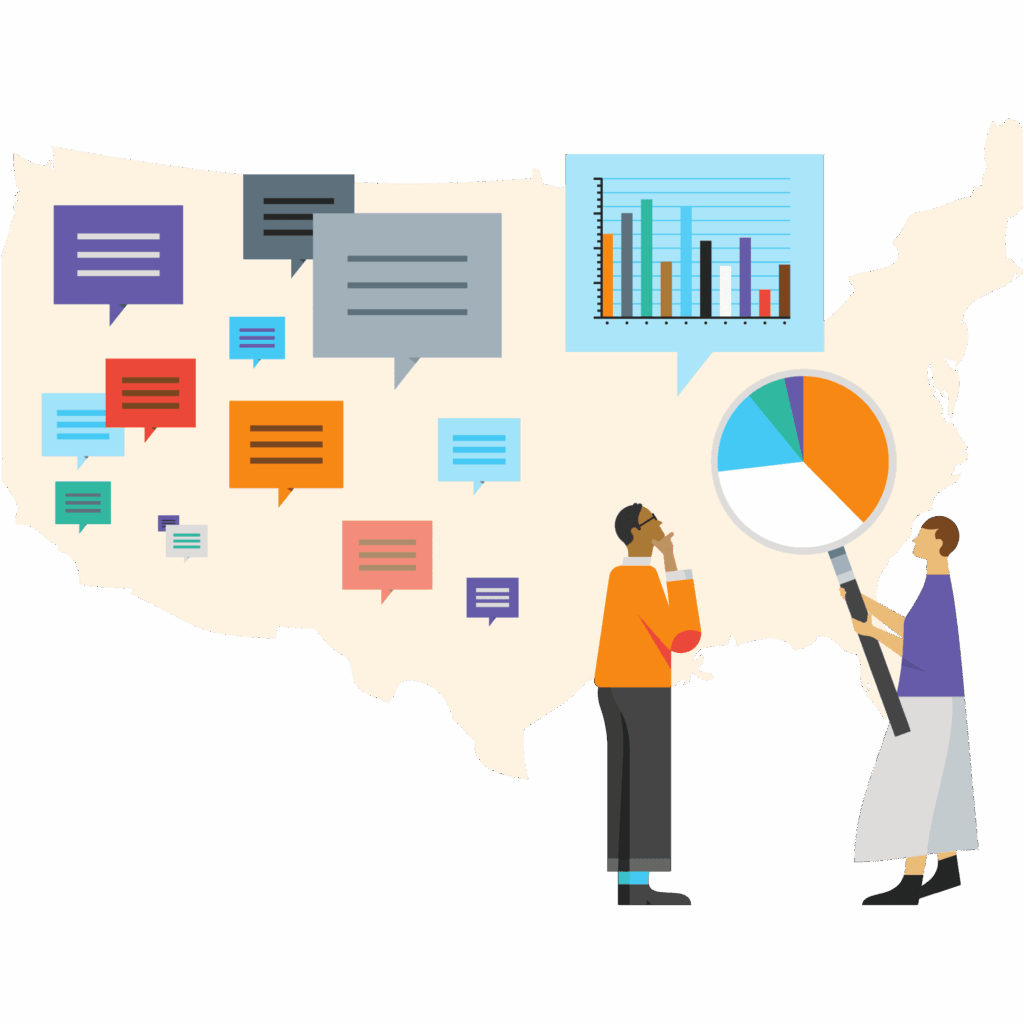Results from NFF’s 2025 State of the Nonprofit Sector Survey are now live.
NFF’s 2025 State of the Nonprofit Sector Survey explores how nonprofits are faring in today’s changing environment and the investments needed to secure their long-term futures. There has never been a more critical time to share what’s going on for nonprofits and how we all can support the organizations that are a vital part of our community infrastructure.
Download our free report for an in-depth analysis of financial and operational data from over 2,200 nonprofits across the country. The report is designed to guide funding and advocacy decisions at this crucial time and includes overall findings and recommendations for nonprofits, government, and philanthropic funders.
Regional Analysis
Explore results in the following geographies:
- California, with a spotlight on the Bay Area and Los Angeles
- Dallas Fort-Worth
- Georgia
- Hawaii
- New York City
- Greater Philadelphia
Online Analyzer
Our online, interactive Survey Analyzer allows you to filter the data by sector, geography, and more.
Free Webinar Recording with National Findings
Watch the free webinar recording above for an overview of national results and download slides from the presentation.
The State of Nonprofit Real Estate Ownership
Read our analysis of nonprofit facility ownership to understand the impact of factors like budget size, geography, and who organizations serve.
Key Findings from the 2025 State of the Nonprofit Sector Survey
In our 2025 survey, 2,206 organizations shared what 2024 looked like, and what they’re bracing for in the future. Some of what we heard echoes long-standing challenges, like rising demand and the toll of doing underfunded work year after year. But we also heard new and urgent concerns: costs are climbing faster than funding, and many are worried about what happens if government support continues to decline.
Most nonprofits are rooted in the communities they serve. When crises hit, they step up.
Results show tension between the rising demand for services and growing financial constraints:
- 85% of survey respondents expect service demand to increase in 2025.
- 36% ended 2024 with an operating deficit, the highest in 10 years of NFF’s survey data.
- 86% said high costs due to inflation have impacted their organizations and clients.
- Over half of survey respondents (52%) have 3 months or less cash on hand, and 18% have one month or less cash on hand.
- 84% of respondents with government funding expect cuts to that funding.
Nonprofits are economic engines for the people they serve and the communities they’re rooted in.
Nonprofits employ about 10 percent of the US private workforce. They contribute $1.4 trillion to the economy each year. While they are essential to everything from disaster recovery to affordable childcare, many operate under strict financial constraints.
- Only 41% of survey respondents are able to pay all full-time staff a living wage.
- Only two-thirds offer health insurance; this drops to 12% for organizations with annual budgets of less than $250,000.
Despite significant financial pressures, nonprofits are deeply rooted in the communities they serve and are expanding programs and addressing shifting community needs.
- 62% of survey respondents said building community wealth and well-being is a major focus of their work; 54% said addressing economic inequality is a major focus.
- 63% expanded their programs or services in 2024.
- One third (32%) of surveyed nonprofits said their leader has lived experience representative of the communities their organization serves.
- Half (51%) said they solicited and acted on community feedback in 2024 to shape their programs and services.
Filter Results with Our Online Analyzer
Dig deeper with our online, interactive survey analyzer that allows you to filter the data by sector, geography, and more.

More Ways to Get Involved
There has never been a more critical time to share what’s going on for nonprofits and how we all can support the organizations that play an essential role in our communities. Help us share the results far and wide with your networks, partners, and colleagues with plug and play outreach materials.


